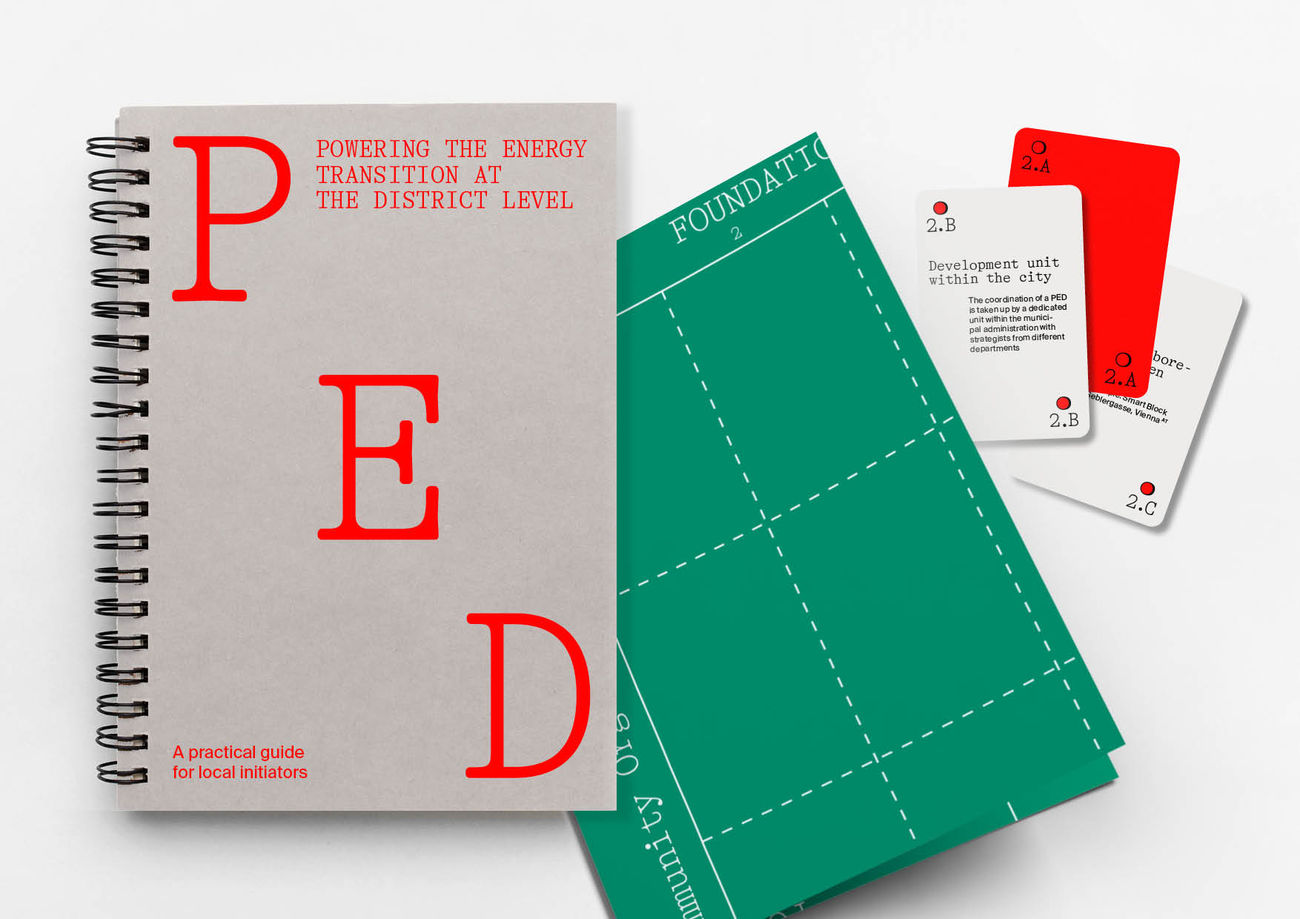PUBLICATION: “Powering the energy transition at the district level”

After two years of researching, experimenting, and gaining knowledge on Positive Energy Districts (PEDs), we are finalising the Cities4PEDs project. We pass on the lessons learned to PEDs in the making and new generations of PEDs through a toolkit: ‘Powering the energy transition at the district level, A practical guide for local initiators’. The toolkit, that will be published in October 2023, is now available for pre-order.
The toolkit will be presented and tested during the Energy Cities Annual Conference in Modena (IT) on 18 October. Later this year, there will be launch events in Brussels (BE) and Mechelen (BE). We will keep you informed about these moments and would love to meet you there to get to work with the toolkit!
How do you initiate and guide a Positive Energy District (PED)? With whom do you build the district strategy, when and where do you start? How do you connect to neighbourhood dynamics? Which city instruments can help you to implement a PED? Cities4PEDs, a two-year energy project as part of Joint Project Initiatives (JPI) Urban Europe, brought together experts from research, innovation, and citizen participation to answer questions like these.
To pass on two years of research to (future) PED initiators and stakeholders, we developed a guide: ‘Powering the energy transition at the district level, A practical guide for local initiators’.
This toolkit collects operational questions, tools, and considerations from real urban districts in Europe. The experiences from Brussels, Stockholm and Vienna and interviews with many other European cases within the Cities4PEDs research trajectory form its backbone. We aim to inspire ambitious initiators, governments, and coalitions of stakeholders in setting up their own PEDs.
The guide is divided into three main parts:
1. Framing PEDs and exemplary portraits
The term Positive Energy District (PED) is a relatively new concept. This chapter outlines the relevant dimensions that make up a PED from a practical point of view. PEDs are maximising energy performance and production, but also strive for other local benefits. They require an incremental transition process and capacity at the local scale. We illustrate these aspects through the narratives of six sample neighbourhoods that are working towards becoming PEDs.
2. Keys for PED (re)development
We then look at 11 questions that PED initiators ask themselves. How do you analyse the local context? How to coordinate the (re)development of a district? How to involve local stakeholders? How to set the right goal? How to structure a step-by-step process? How to finance it? What projects to set up? How to develop local capacity? What city instruments are available? How to monitor and evaluate the process? How to create an enabling environment? The guide provides a number of inspiring directions, illustrated with examples from concrete cases, which are written so that you can start applying them yourself.
3. Considerations
Each strategy comes with its own tensions. Is it mostly important to meet the energy target, or should we at the same time invest in a sustainable community? How important is it that current residents can stay in the neighbourhood? Does it make more sense to renovate buildings and public spaces in phases, or to opt for a more expensive, deeper transformation all at once? The considerations in this chapter are designed to stimulate discussion and challenge you to reflect on the value frameworks and assumptions you take for granted.
Next to a book, a set of playing cards is included in the toolkit. The cards summarise building blocks, actions, and considerations that will help you setting up local workshops with colleagues and stakeholders.
Will you join our process of testing, learning, and accelerating new practices for PED (re)development? The toolkit is now available for pre-order. The number of printed copies of this toolkit will be limited, so reserve your copy before 31 May 2023, using this link.
Those who have pre-ordered before 31st May will receive their copy in October 2023. The pre-order price of the toolkit is €32,-, including the book and the playing cards.
Are you a local organisation, student, or local resident wanting to purchase the guide, but do not have the means to do so? Send us an email at info [at] architectureworkroom.eu.
Disclaimer: the design in the image is a mock up. The final publication might have a different design.





